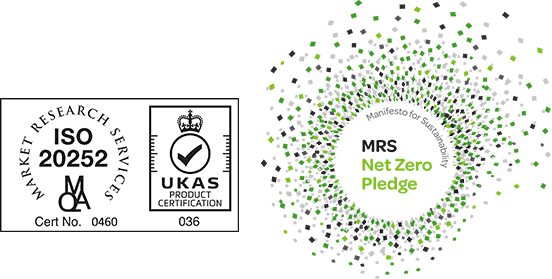This blog explores what Jamal, our Research Executive, learnt during a sustainability webinar.
At Progressive, we are looking at ways to improve, especially when it comes to thinking about how we can work more sustainably. Therefore, when the opportunity arose to learn more via a webinar, Diane and I signed up. The webinar was hosted by Perkbox and presented by Jessie Frahm, from inFocus.
We all understand that sustainability needs urgent global attention, with headlines from recent climate disasters emphasising the magnitude of the situation we currently find ourselves. Jessie explained that we have come to a point where we are simply living beyond our capacity. She gave us some fascinating and sobering statistics. All our actions, either small or large, have consequences. Cumulatively, we now require 1.7 planets to provide the resources to produce the goods we use and to absorb the waste. Similarly, it takes our planet one year and eight months to regenerate what we use in one year. All this means that by 2030, we will need two planets to sustain our current lifestyle. Upon hearing such alarming statistics, I thought to myself, how has it come to this and what could possibly be the solution?
A change of perception and behaviour allows us to then move forward in a way that works without damaging our future; this has to happen on both an individual and organisational level. Aside from reducing the impact on the planet as an organisation, there are other positives to adopting sustainable behaviours, for example, attracting talent and customers. It was surprising to learn that the sustainability page is often the second most visited page on companies’ websites. Furthermore, consumers are increasingly choosing sustainable options, which in turn gives businesses a competitive advantage by leading with a sustainable approach. Nearly two thirds of Generation Z and Millennials want companies to take a stand on social, cultural, environmental and political issues; and a similar proportion of Baby Boomers want companies to reduce their usage of plastics. Organisations need to take responsibility if they want to stay relevant for today’s consumers.
The concept of circularity in the economy was also discussed and also really neatly explained in an animated film from the Ellen McArthur Foundation – view it here. Fortunately, there are solutions which companies could start to implement straight away. In order to begin to understand your own company and where it stands, you should conduct a lifecycle analysis. This can be achieved by mapping out the business and finding the areas which contribute to your footprint; this may be in transport, supply chain or waste. Then take responsibility for it and decide how to reduce this footprint by becoming more circular rather than linear, e.g., look for way to reduce or reuse waste. Prioritise and look at others in the industry, partnerships are useful in creating solutions and reducing costs and becoming positive within the organisation’s sustainability efforts.
In summary the webinar had a rallying call – you are the difference, you are the change maker, you don’t have to have a title to be a leader. Anyone can take responsibility and make positive changes in order to understand the world and become sustainable. This is an important message – not everyone is an expert, but you can be a catalyst for change. The webinar was eye-opening on an organisational and personal level, as a team we need to discuss how to adapt to becoming circular and sustainable for years to come.




